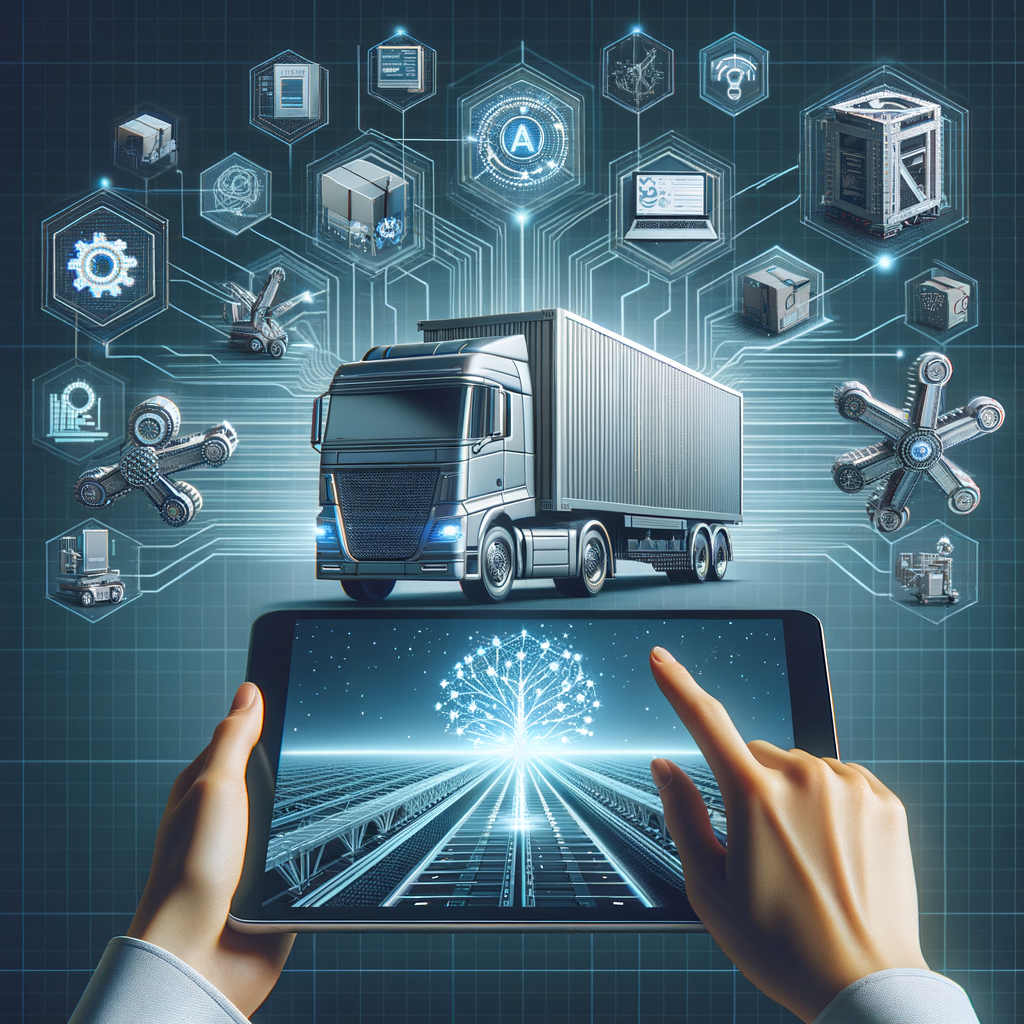
Beyond Automation: The Evolution of AI-Powered Supply Chains
Explore how artificial intelligence is transforming supply chain management, driving efficiency, innovation, and resilience in an ever-evolving market landscape. This comprehensive article delves into AI technologies enhancing logistics, inventory management, and demand forecasting, ultimately redefining the supply chain industry's future.
Beyond Automation: The Evolution of AI-Powered Supply Chains
In recent years, the supply chain industry has witnessed a profound transformation, driven largely by advancements in artificial intelligence (AI). As businesses strive to optimize operations, enhance efficiency, and remain competitive, AI has emerged as a critical enabler of innovation within this domain. This article aims to provide an in-depth exploration of how AI technologies are reshaping supply chains, offering insights into the various applications and benefits that are being realized across the industry.
The Rise of AI in Supply Chain Management
AI's integration into supply chain management (SCM) is more than just an extension of existing technologies; it represents a paradigm shift towards intelligent systems capable of making real-time decisions, thus significantly enhancing overall performance. From logistics and inventory management to demand forecasting and risk mitigation, AI's applications are vast and varied.
Logistics Optimization
One of the most notable applications of AI in supply chains is logistics optimization. By leveraging AI-driven analytics, companies are able to streamline delivery routes, minimize fuel consumption, and reduce transportation costs. Machine learning algorithms analyze vast datasets to predict the most efficient shipping methods and routes, ultimately ensuring smoother operations and faster delivery times.
Inventory Management
AI systems are also being employed to revolutionize inventory management. Traditional inventory systems often lead to overstocking or stockouts due to their reliance on static data. In contrast, AI-powered platforms can autonomously monitor and adjust stock levels based on real-time sales data, market trends, and consumer behavior insights. This dynamic approach minimizes holding costs and maximizes sales opportunities.
Demand Forecasting
The ability to accurately forecast demand is a critical component of successful supply chain management. AI enhances demand planning through predictive analytics, machine learning models, and large-scale data analysis. By accurately anticipating customer needs and adjusting production schedules accordingly, companies can reduce waste, improve customer satisfaction, and increase profitability.
Enhancing Supply Chain Resilience
In addition to optimizing efficiency, AI technologies are instrumental in enhancing supply chain resilience. With global supply chains often exposed to disruptions from fluctuating geopolitical climates, natural disasters, or pandemics, adaptability and resilience have never been more crucial.
Risk Mitigation
AI-driven risk assessment tools can identify potential threats before they become significant issues. By analyzing historical and real-time data, AI systems provide early warnings and risk mitigation strategies, enabling companies to react proactively instead of reactively. This predictive capability dramatically reduces operational disruptions and ensures continuity.
Sustainability Initiatives
Sustainability is an increasingly important consideration for modern businesses. AI-powered supply chains can contribute significantly by optimizing resource consumption and minimizing waste. For example, intelligent logistics planning reduces carbon emissions, while AI-driven recycling and waste management processes enhance environmental stewardship.
The Future Outlook of AI-Driven Supply Chains
As we look to the future, the potential for AI to further transform supply chains is immense. With the continued advancement of AI technologies such as computer vision, natural language processing, and blockchain integration, the industry is poised for further innovation and growth.
1. Integration with IoT: The Internet of Things (IoT) presents opportunities for unprecedented interconnectedness between devices, enabling AI systems to gather and process data in real-time across multiple touchpoints.
2. Autonomous Vehicles: The development of autonomous delivery vehicles, drones, and robots is set to revolutionize the logistics aspect of supply chains, making last-mile delivery faster, cheaper, and more efficient.
3. Advanced Data Analytics: With advancements in big data analytics, AI systems will become even more capable of handling complex datasets, leading to more accurate insights and tailored business strategies.
In conclusion, the evolution of AI in supply chain management is just beginning. As technology continues to advance, AI-powered supply chains will become more sophisticated, efficient, and resilient, ultimately redefining the way we produce, distribute, and consume goods across the globe. By embracing these technologies today, businesses can position themselves at the forefront of innovation, ready to tackle the challenges of tomorrow's marketplace.